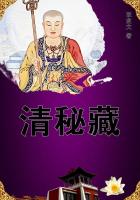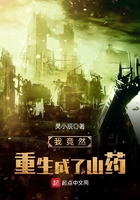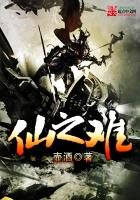This last exclamation was wrung from Jeekie's lips by a sudden development of "forces of Nature" which astonished even him. Instead of a silver lining the "black chap" exhibited one of gold. In an instant it seemed to turn to acres of flame; it was as though the heavens had taken fire. A flash or a thunderbolt struck the water within ten yards of their canoe, causing the boatmen to throw themselves upon their faces through shock or terror. Then came the hurricane, which fortunately was so strong that it permitted no more rain to fall. The tall reeds were beaten flat beneath its breath; the canoe was seized in its grip and whirled round and round, then driven forward like an arrow. Only the weight of the men and the water in it prevented it from oversetting. Dense darkness fell upon them and although they could see no star, they knew that it must be night. On they rushed, driven by that shrieking gale, and all about and around them this wall of darkness. No one spoke, for hope was abandoned, and if they had, their voices could not have been heard. The last thing that Alan remembered was feeling Jeekie dragging a grass mat over him to protect him a little if he could. Then his senses wavered, as does a dying lamp. He thought that he was back in what Jeekie had rudely called "City bucket shop," bargaining across the telephone wire, upon which came all the sounds of the infernal regions, with a financial paper for an article on a Little Bonsa Syndicate that he proposed to float. He thought he was in The Court woods with Barbara, only the birds in the trees sang so unnaturally loud that he could not hear her voice, and she wore Little Bonsa on her head as a bonnet. Then she departed in flame, leaving him and Death alone.
Alan awoke. Above the sun shone hotly, warming him back to life, but in front was a thick wall of mist and rising beyond it in the distance he saw the rugged swelling forms of mountains. Doubtless these had been visible before, but the tall reeds through which they travelled had hid the sight of them. He looked behind him and there in a heap lay the Ogula around their chief, insensible or sleeping. He counted them and found that two were gone, lost in the tempest, how or where no man ever learned. He looked forward and saw a peculiar sight, for in the prow of the drifting canoe stood Jeekie clad in the remains of his white robe and wearing on his head the battered helmet and about his shoulders the torn fragments of green mosquito net. While Alan was wondering strangely why he had adopted this ceremonial garb, from out of the mist there came a sound of singing, of wild and solemn singing.
Jeekie seemed to listen to it; then he lifted up his great musical voice and sang as though in answer. What he sang Alan could not understand, but he recognized that the language which he used was that of the Asiki people.
A pause and a confused murmuring, and now again the wild song rose and again Jeekie answered.
"What the deuce are you doing? Where are we?" asked Alan faintly.
Jeekie turned and beamed upon him; although his teeth were chattering and his face was hollow, still he beamed.
"You awake, Major?" he said. "Thought good old sun do trick. Feel your heart now and find it beat. Pulse, too, strong, though temp'rature not normal. Well, good news this morning. Little Bonsa come out top as usual. Asiki priests on bank there. Can't see them, but know their song and answer. Same old game as thirty years ago. Asiki never change, which good business when you been away long while."
"Hang the Asiki," said Alan feebly, "I think all these poor beggars are dead, and he pointed to the rowers.
"Look like it, Major, but what that matter now since you and I alive?
Plenty more where they come from. Not dead though, think only sleep, no like cold, like dormouse. But never mind cannibal pig. They serve our turn, if they live, live; if they die, die and God have mercy on souls, if cannibal have soul. Ah! here we are," and from beneath six inches of water he dragged up the tin box containing Little Bonsa, from which he extracted the fetish, wet but uninjured.
"Put her on now, Major. Put her on at once and come sit in prow of canoe. Must reach Asiki-land in proper style. Priests think it your reverend uncle come back again, just as he leave. Make very good impression."
"I can't," said Alan feebly. "I am played out, Jeekie."
"Oh! buck up, Major, buck up!" he replied imploringly. "One kick more and you win race, mustn't spoil ship for ha'porth of tar. You just wear fetish, whistle once on land, and then go to sleep for whole week if you like. I do rest, say it all magic, and so forth--that you been dead and just come out of grave, or anything you like. No matter if you turn up as announced on bill and God bless hurricane that blow us here when we expect die. Come, Major, quick, quick! mist melt and soon they see you." Then without waiting for an answer Jeekie clapped the wet mask on his master's head, tied the thongs and led Alan to the prow of the canoe, where he set him down on a little cross bench, stood behind supporting him and again began to sing in a great triumphant voice.
The mist cleared away, rolling up like a curtain and revealing on the shore a number of men and women clad in white robes, who were martialled in ranks there, chanting and staring out at the dim waters of the lagoon. Yonder upon the waters, driven forward by the gentle breeze, floated a canoe and lo! in the prow of that canoe sat a white man and on his head the god which they had lost a whole generation gone. On the head of a white man it had departed; on the head of a white man it returned. They saw and fell upon their knees.
"Blow, Major, blow!" whispered Jeekie, and Alan blew a feeble note through the whistle in the mouth of the mask. It was enough, they knew it. They sprang into the water and dragged the canoe to land. They set Alan on the shore and worshipped him. They haled up a lad as though for sacrifice, for a priest flourished a great knife above his head, but Jeekie said something that caused them to let him go. Alan thought it was to the effect that Little Bonsa had changed her habits across the Black Water, and wanted no blood, only food. Then he remembered no more; again the darkness fell upon him.














